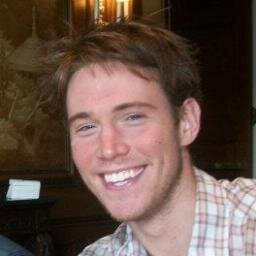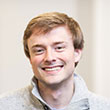Introduction to Programming
For Humanists
This course introduces participants to humanities programming through the use of Python for data acquisition, cleaning, and analysis. The course assumes no prior technical knowledge and will focus on accomplishing basic research tasks. Students should walk away feeling equipped to tackle a variety of typical problems that arise for digital humanists.
We will discuss programming and debugging concepts through the design, implementation, and presentation of small text analysis projects. Primary technologies and topics covered in this course will include the command line, Git, GitHub, and Python; working with data sources such as API’s, CSV files, and data scraped from the web; and basic text analysis. Over the course of the week, we will work with data from DPLA and Project Gutenberg. If the words above mean nothing to you, don’t panic—this course is for you.
Instructors
Ethan Reed

Ethan Reed is a recent PhD in English at the University of Virginia. He was a 2015-2016 Praxis Program Fellow in the Scholars' Lab, where he was also lead developer for ClockWork, a sonification project. As a Graduate Fellow in Digital Humanities in the Scholars' Lab during the 2017-2018 academic year, he worked on Measured Unrest in the Poetry of the Black Arts Movement, a natural langauge processing project that explored the use of computational analysis in the interpretation of poetry from the Black Arts Movement. His dissertation explored affect and unrest in recent American literature. This coming year, he will be starting at Deloitte Government & Public Services as a Consultant.
Brandon Walsh

Brandon Walsh is Head of Student Programs in the Scholars' Lab in the University of Virginia Library. Prior to that, he was Visiting Assistant Professor of English and Mellon Digital Humanities Fellow in the Washington and Lee University Library. He received his PhD and MA from the Department of English at the University of Virginia, where he also held fellowships in the Scholars’ Lab and acted as Project Manager of NINES. His dissertation examined modern and contemporary literature and culture through the lenses of sound studies and digital humanities, and these days he works primarily at the intersections of digital pedagogy and digital humanities. He serves on the editorial boards of the Programming Historian and The Journal of Interactive Technology and Pedagogy. He is a regular instructor at HILT, and he has work published or forthcoming with Programming Historian, Insights, the Digital Library Pedagogy Cookbook, Pedagogy, Digital Pedagogy in the Humanities, and Digital Scholarship in the Humanities, among others. Check out his personal site for more information about his various projects.